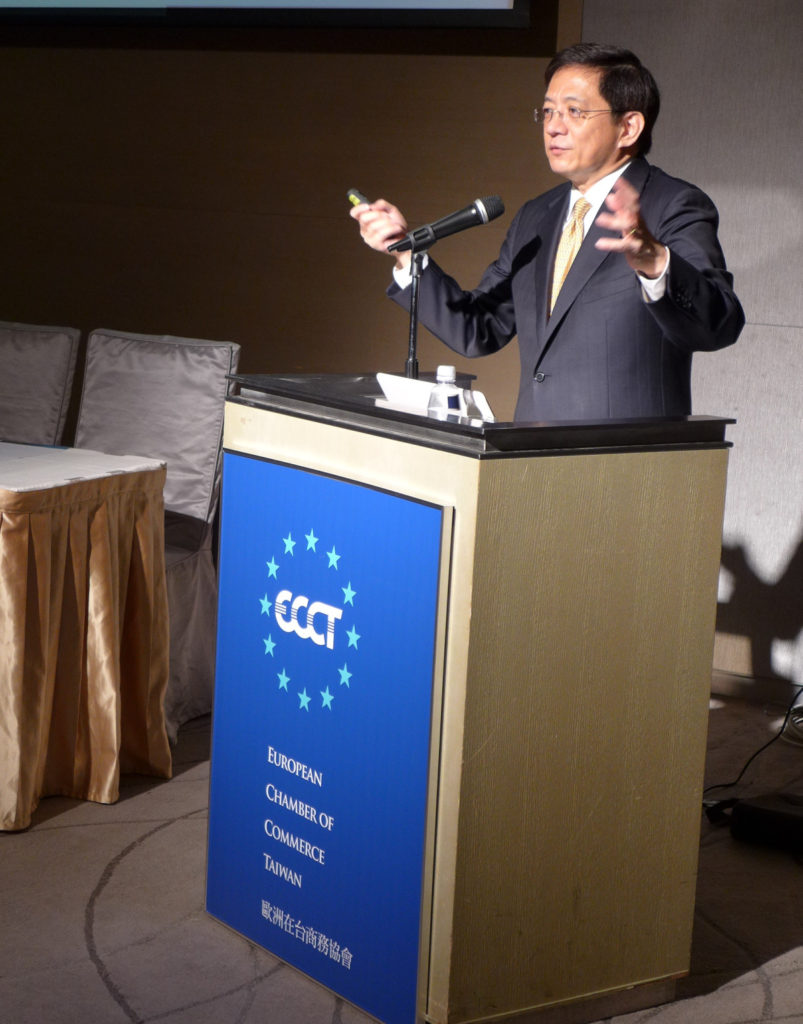Premium Event on Free Economic Pilot Zones

Taiwan is experimenting with new ways to boost economic growth and competitiveness and attract investment. The Executive Yuan's approval of a plan to set up Free Economic Pilot Zones (FEPZ) is one example. According to CEPD Minister Kuan, the plan has the strong support of President Ma Ying-jeou, the premier and vice premier. Kuan also said that the government is committed to fair treatment of foreign companies doing business in the FEPZs.
The FEPZs will be test beds of economic liberalisation where restrictions will be greatly loosened on the flow of goods, people, money and information to create a more favourable environment for doing business. The government's objective in setting up the FEPZs is to demonstrate the benefits of free trade and open markets. They will do this by removing investment and trade barriers, refining business conditions and improving government efficiency.
Should the FEPZs be successful in bringing economic benefits, they will be expanded beyond the initial zones in the future.
While the government started introducing economic processing zones back in the 1960s, FEPZs are different from conventional processing zones or science parks in that they will concentrate on high end and high value-added services.
Initially, the zones will focus on four main areas: intelligent (or smart) logistics, international medical care, value-added agriculture and business cooperation. Intelligent logistics will be aimed at speeding up the flow of goods. The idea behind international medical services is to expand the current small scale of international medical services available in Taiwan. For example, medical tourism services such as packages that offer health checks combined with travel or leisure will be promoted. Value-added agriculture services in the FEPZs will allow more agricultural goods to come into Taiwan (including goods from China, which are subject to many restrictions at present) and for local agricultural goods to be processed and then re-exported. There are several areas of potential. For example, Taiwan produces 18,000 tonnes of tea but most tea drunk in Taiwan is imported from regions where costs are lower. Most high quality tea grown in Taiwan is exported and this tea could be processed in the FEPZs. In terms of business cooperation, Minister Kuan said that authorities are open to any good business proposals currently not allowed in the rest of Taiwan. The government is also exploring the idea of introducing wealth and asset management services to allow certain financial institutions to sell a wider variety of products in the FEPZs.
In the FEPZs it will be much easier to acquire land and hire people, including foreign professionals. For example, foreign professionals will be able to provide services needed on a commission or contract basis. Meanwhile, the tax environment in FEPZs will be much friendlier than in Taiwan proper and incentives will be offered. In addition, agricultural and raw materials imported into the zones will be exempt from customs tariffs, commodity taxes, trade promotion services charges and harbour service fees. Moreover, exported goods will be exempted from enterprize income tax and will be allowed to enter and leave the zones without examination or escourt.
The establishment of FEPZs will be carried out in two stages. The first phase will require only the amendment of a portion of the laws governing Taiwan's seven pre-existing free trade zones located in Taiwan's harbours and the Taoyuan Aerotropolis. To pave the way for the launch of the second phase, the CEPD is expected to submit a bill to the legislature in the second half of 2013.
Through the FEPZs, the government aims to attract an increase in private investment of NT$20 billion in 2014, increase GDP by NT$30 billion, create 13,000 new jobs in 2014 and boost trade in FTZs to over NT$1 trillion.
During his brief presentation at the lunch, Winston Yu explained some of the tax incentives planned for the FEPZs. The storage and processing of goods in FEPZs would be tax exempt. Taiwanese companies that make real investments in FEPZs (not including land or stock) using offshore dividends or repatriated profits will be exempt from income tax. Qualified multinational corporations which set up regional operational headquarters and increase their investments or create a certain number of jobs can enjoy a 10% income tax rate on real investments. There are also tax exemptions for the income of foreign companies which provide enterprizes within the zones with patents and technology licences. In addition, Mainland Chinese professionals will be exempted from reporting foreign sourced income and only 50% of the first three years of salary income is included in taxable income. For FEPZ companies that invest in R&D, up to 15% of their expenses may be credited against their corporate income tax payable every year for three years. Companies may consider restructuring or reorganizing their operations to take advantage of FEPZs. For example, there may be tax savings by relocating R&D operations to FEPZs but companies should first consider the transfer pricing implications, according to Yu.
Tsai Ting-yi introduced some FEPZ projects, under the authority of the Taiwan International Ports Company (TIPC). Taipei Port, an existing free trade zone, is expanding rapidly. Capacity increased by 67% in 2012 alone. Tonglit logistics, an automobile logistics business, is the most successful enterprize in the Taipei Port. Last year 70,000 cars were assembled and exported from there. Tsai also introduced the logistics and warehousing centre at Taipei Port, which is currently under construction. Tsai believes that this area is perfect for the development of FEPZ businesses such as agri-logistics. Tsai went on to introduce the Nanshing plan for the port of Kaohsiung. This area is next to a modern container terminal and covers 106 hectares, of which, 50 hectares has already been completed. To attract investors to Nanshing, TIPC is offering 20 year contracts, low lease rates and discounts on management fees for three years.
